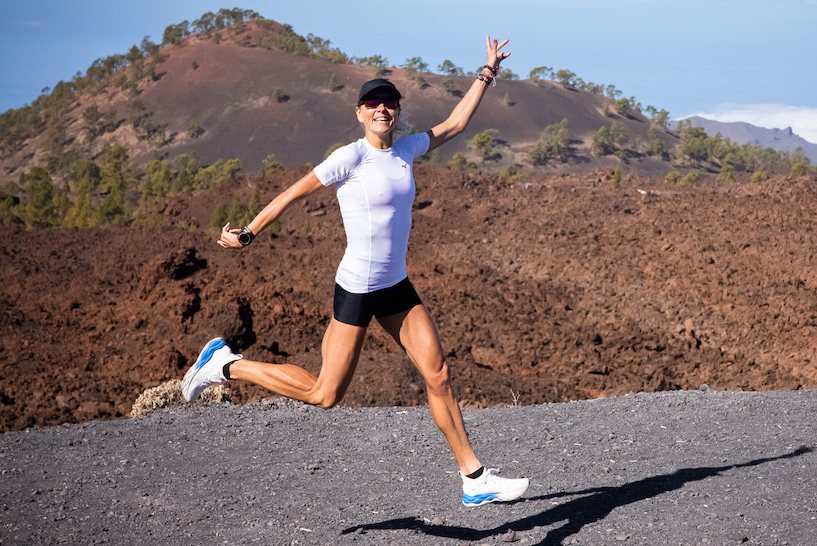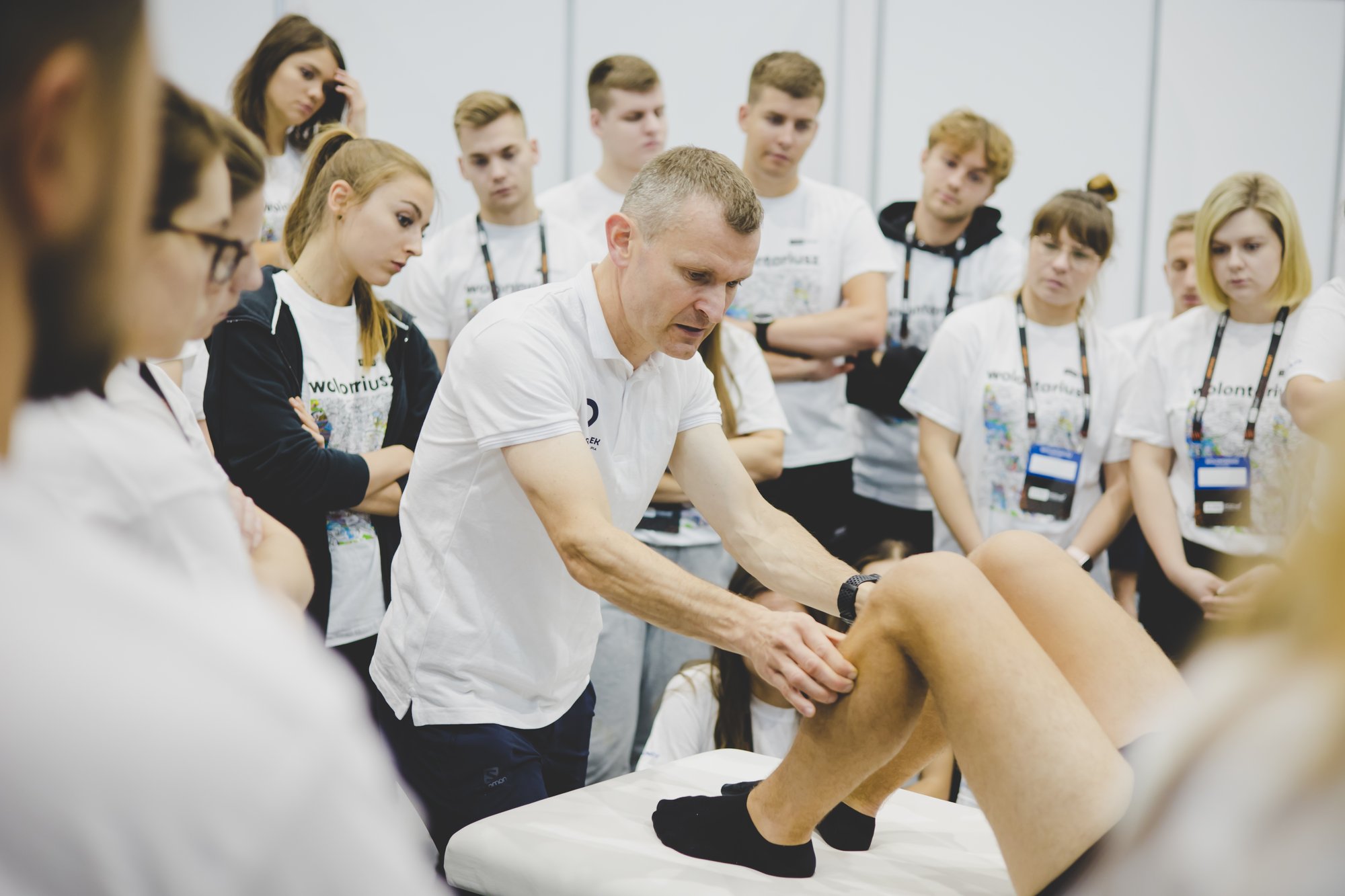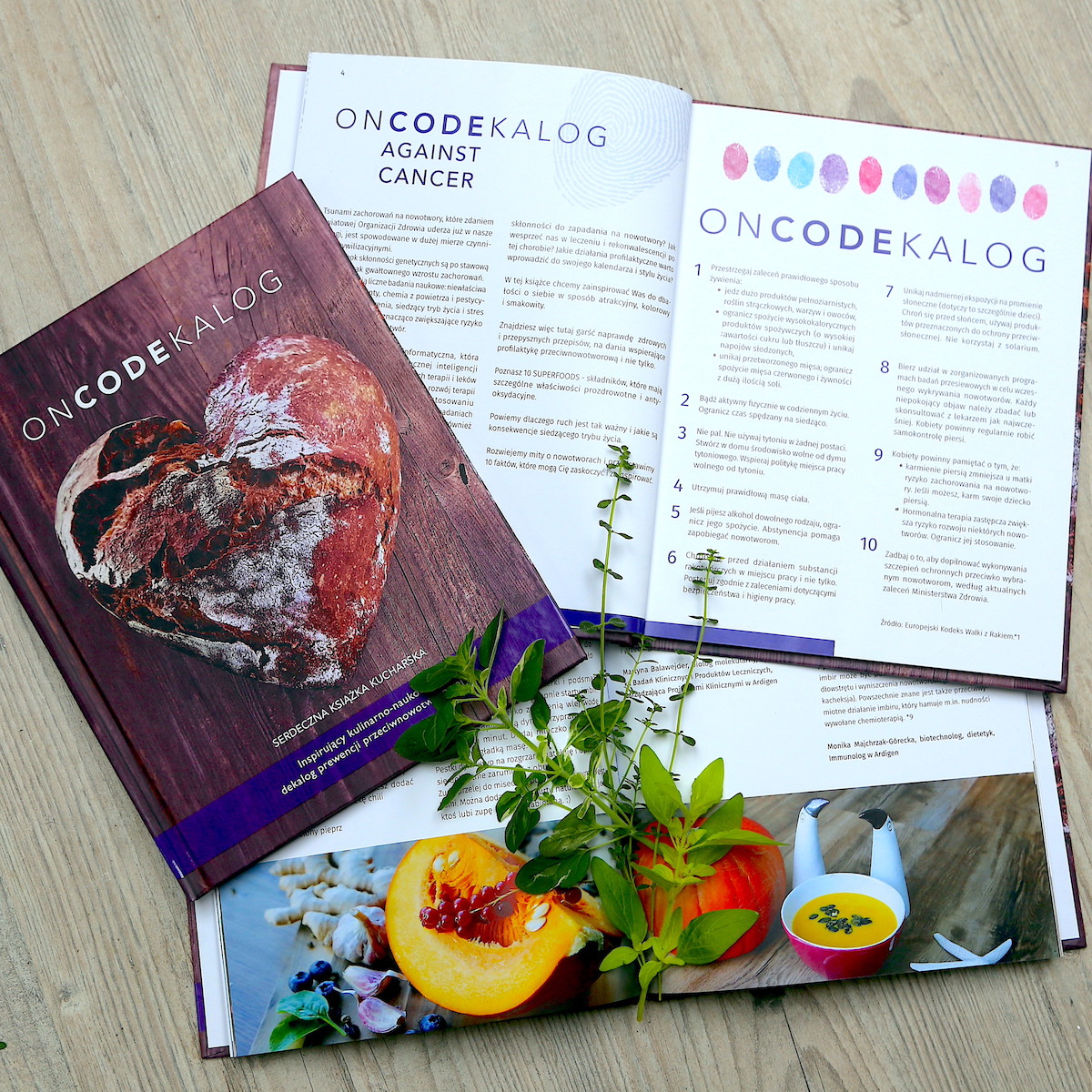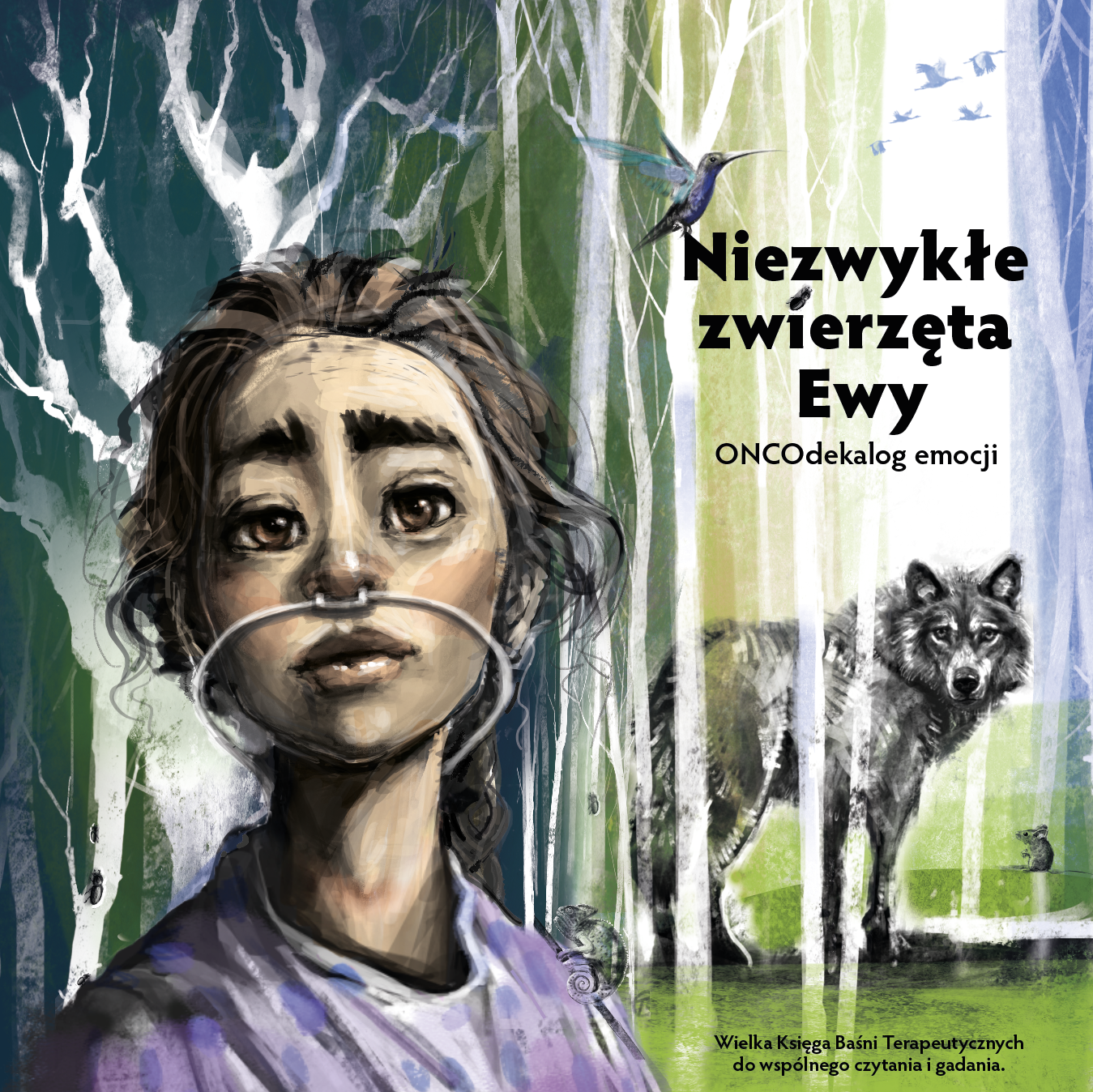ONCODecalogue of Activity
Discover the Power of Activity and Resilience


Get Your Digital Copy
Welcome to a journey of extraordinary resilience, inspiring stories, and scientific insight with "ONCOdecalogue of Activity."
This compelling book, the third Installment in the ONCOdecalogue Series prepared by Ardigen's CODE AGAINST CANCER community, is dedicated to supporting cancer patients and aiding in the prevention of cancer and lifestyle diseases. It addresses the role of physical, social, interpersonal and creative activity in the prevention and treatment of cancer and other lifestyle diseases. And also in the pursuit of a happy life.
Download it for free for yourself, your loved ones and anyone for whom it can be of help and inspiration.
-
Engage with ten riveting conversations featuring an eclectic mix of individuals –
from a Himalayan mountaineer and oncologist to an Olympic silver medalist,
from a bone marrow transplant recipient to renowned professors and dedicated athletes.


Each conversation unveils personal stories
of overcoming crises, returning to health, and helping others
through physical, creative, and social activities.
- Read about fascinating world of how our bodies operate.
Learn about the interplay of hormones, laughter, pain, and motivation,
and how understanding these processes equips us with tools for health and happiness.


- Discover the universal “Health and Activity Pill,”
a culmination of unique ingredients contributed by each participant, forming a decalogue of inspirations for patients and everyone seeking a healthier, more enjoyable life.
- "ONCOdecalogue of Activity" is more than a book;
it's a movement towards understanding and embracing the vitality of life, even in the face of challenges.
ONCOdecalogue of Activity is the third Installment in the ONCOdecalogue Series prepared by Ardigen and Code Against Cancer community.
Inspirational Voices Behind 'ONCOdecalogue of Activity
We want to say "thank you" to everyone involved in writing and publishing this book. We want this edition to find its way onto hospital shelves and the homes of people who'll find in it inspiration for an active, happy life.
.png?width=300&height=300&name=S%C5%82awomir%20(17).png)
Radosław Głodek
Architect, Graphic Designer,
Bone Marrow Transplant Patient
"Celebrate everyday life, don’t wait to be happy. We all know this, but we immediately fall into the rhythm of obligations, pressure. And also: appreciate emotions. Appreciate them a lot. They are an unexplored factor, telling us a lot about our bodies, where we are, and in what relationships. Don’t be ashamed of fear or weakness. Be able to let go. Not everything needs to be lifted; it’s important to be able to talk about it.
Don’t aim to be a superhero."
Gerhard Mikolaiczik, Ph.D.
Physiologist
"Think of yourself as unique. Live a strong life–nature has given you such an opportunity. You are needed by other people. Give yourself a gift every day.
Walk a few steps, laugh, hug someone, watch something funny."
.png?width=300&height=300&name=S%C5%82awomir%20(16).png)
.png?width=300&height=300&name=S%C5%82awomir%20(14).png)
Adam Bielecki
Himalayan climber
"As for the sport itself, I think the key is to race against yourself and not against others. Often people who enter a sport quickly get discouraged because they try to run but get out of breath, feeling like the last loser because they can’t even run a short distance. This is the wrong approach. If you can’t run, then walk. In the first training sessions, you’ll march until you get the condition to be able to run part, and then the whole distance. It’s important to compete with yourself from yesterday. To overcome yourself, not others."
Maria Magdalena Andrejczyk
Olympic Silver Medalistin Javelin Throw
"In those moments, when we receive information that will change our lives, we feel it with our whole body. Then, time is the most important thing. Solutions come with time; the best thoughts come with time. However, I am aware that there are situations where there simply is no more time left. That’s why in such moments, solitude has been very helpful to me."
.png?width=300&height=300&name=S%C5%82awomir%20(18).png)
.png?width=300&height=300&name=S%C5%82awomir%20(10).png)
Edyta Lewandowska
Titled Mountain Runner
"My beloved writer, Gabriel Garcia Marquez once said:
“Tomorrow is never guaranteed to anyone, young or old.
Today could be the last time to see your loved ones,
which is why you mustn’t wait; do it today, in case tomorrow never arrives.
I am sure you will be sorry you wasted the opportunity today to give a smile, a hug, a kiss,
and that you were too busy to grant them their last wish.”"
Kaja Milanowska - Zabel, Ph.D.
Bioinformatician,
Titled Mountain Runner
"First and foremost, take care of yourself. Movement is my antidote. It has tremendous power; it’s my meditation. It’s my time spent with myself. Focus on yourself for a few minutes each day. It can yield great results in terms of prevention and future diagnostics. With such self-focus, you can also detect signs of abnormal body functioning earlier and seek medical advice sooner. I laugh because I’m thoroughly tested in every way. Sport taught me that. An untreated injury excludes me from competitions, and that’s very important to me.
Self-awareness is like an oxygen mask on an airplane. I put mine on first, then on my child."
.png?width=300&height=300&name=S%C5%82awomir%20(19).png)
.png?width=300&height=300&name=S%C5%82awomir%20(21).png)
Sławomir Marszałek, Ph.D.
Physiotherapist, Osteopath,
Marathon Runner., Athletes’ Trainer
"Look for good sources. Seek and expect information from specialists. Believe in science and in yourself. Don’t rely solely on subjective feeling. Don’t rely on the Internet, on anecdotes, on what those closest to you say, because that’s how it seems to them. Believe in yourself, that you can. Overcome your own fears and barriers. Science will help you with that. Good luck!"
Agnieszka Blum, Ph.D.
Hematooncologist, Internist,
Researcher
"Trust. In the doctor, with whom they go along the long road to health. And in other therapists involved in the process. So that we could be partners in this journey and sincerely talk to each other, supporting each other with openness and trust."
.png?width=300&height=300&name=S%C5%82awomir%20(22).png)
.png?width=300&height=300&name=S%C5%82awomir%20(23).png)
Agata Mazurek
Physiotherapist
"I’d ask: what makes you happy? And I’d add: find that. Gardening, flowers? I’ll show you exercises that help you maintain your garden for a long time without back pain. Do you like mushroom picking? Walk to the bus stop, take a ride, and go to the forest. You’ll walk, and soon you’ll run or walk with Nordic poles much further. I had a patient who loved playing the drums. He modified his setup, improved his seat, and plays! Without back pain!!! That drove him to act and find a solution. You like photography–take your camera and go take pictures. Your movement could be dancing. Going shopping. Cleaning? Do it. You don’t have to go to the gym or the pool if you don’t like it. Totally out of energy today? Lie down and rest. When you find joy, activity will no longer be an ordeal or an obligation, but a gift you give yourself.
Prof. Marzena Samardakiewicz
Psycho-oncologist, Clinical Psychologist, Extraordinary Professor in the Clinic of Hematology, Oncology, and Pediatric Transplantology
"When hearing a diagnosis, we receive a message: this is such a difficult time when you need to take care of yourself, lead a sparing lifestyle. And most understand it subjectively that this sparing mode is to lie down in bed and not move either hand or foot. (...) Pajamas, a robe, socks, slippers, and I already enter the role of a sick person. The patient should drag their feet, walk slower. And we have to be very careful about this. Because this style, how we and the environment associate illness, affects our well-being. And the lack of activity often worsens our condition—both physical and psychological. (...)"
.png?width=300&height=300&name=S%C5%82awomir%20(25).png)
Explore Other "ONCODecalogues"
Here, you can see our collection of books created to inspire and support oncology patients, their families, hospital workers, and everyone who shares our interest in cancer treatment and its prevention.
Each year, a new book on such topics is published. Then, hospitals and cancer patients receive its free copies. We invite scientists, specialists, and doctors to participate - and to provide you with expert insights on difficult topics.

ONCODecalogue - Cookbook
Easy recipes using anti-cancer superfoods and expert knowledge on nutrition to support cancer patients and the prevention process

ONCODecalogue of Emotions
Therapeutic tales for young patients, their parents, and therapists. They are designed to help communicating complex emotions and create a sense of community.

